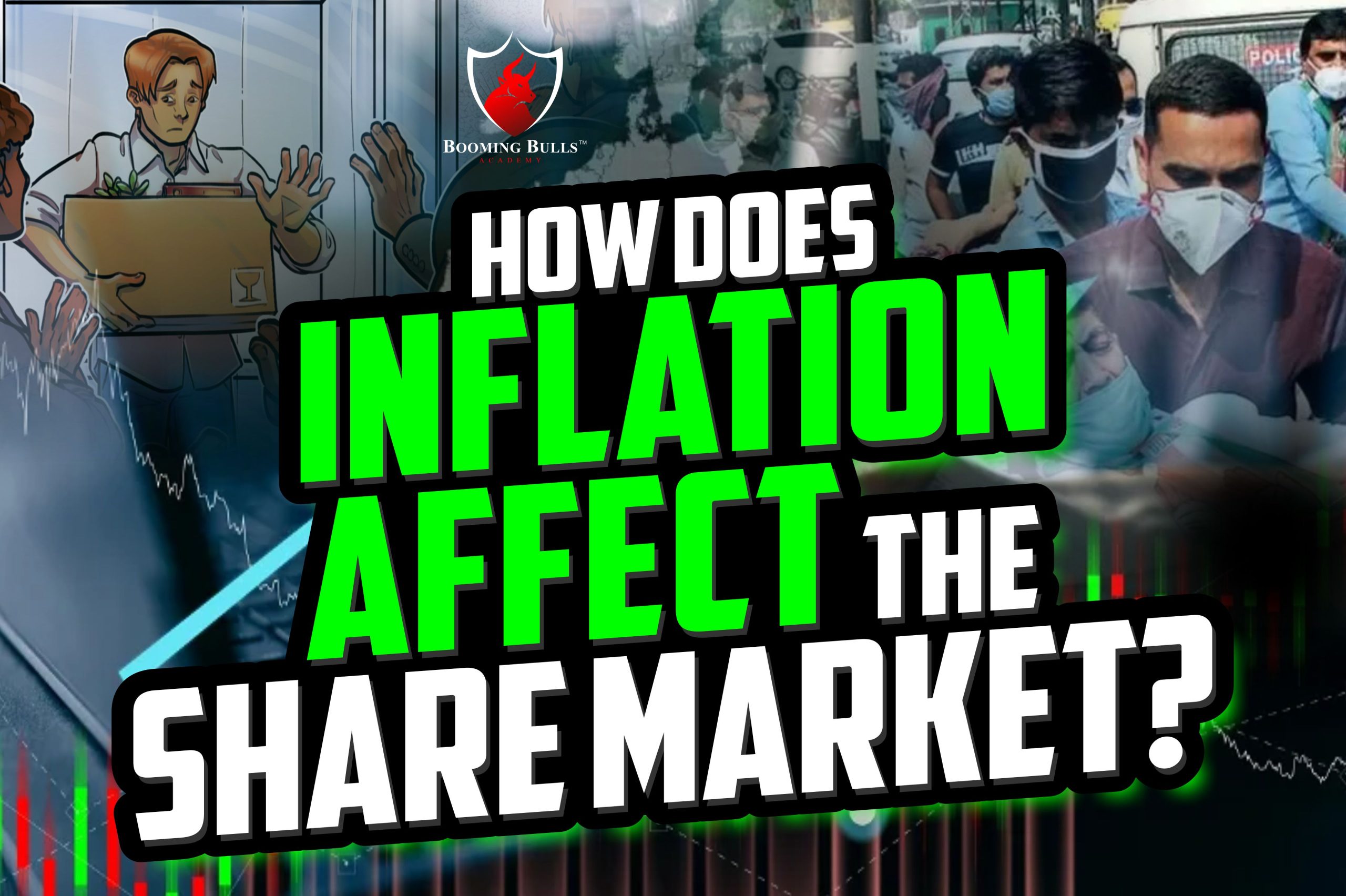How Does Inflation Affect the Share Market?
Inflation is the increase in the price of goods and services due to an end number of reasons, but how does it affect the share market? Let us find out.
Causes of Inflation
The causes of inflation can be broadly divided into “demand-pull” and “cost push” and “inflation expectations”.
- Demand-pull is when the demand for goods and services is more than the supply, which leads to manufacturers increasing the overall price
- Cost push is when the cost of manufacturing is increased, leading to an increase in price of the goods as well
- Inflation expectation is when it is assumed that the price of certain goods and services might increase due to several external factors, and then it does. The best example of this would be the recent Russia-Ukraine war, which has led to an exponential increase in fuel prices across the world, even though most countries have their own domestic fuel manufacturers which can easily mitigate the 13 percent of the world’s oil export from Russia.
Effects of Inflation on the Share Market
Inflation reduces the overall purchasing power of a country’s economy. This can cause the economic growth of a country to come to a halt, unless the situation is not resolved by an increase in wages and in turn the purchasing power of the people.
But how does it affect the share market?
- Lower Returns – One way in which inflation affects the share market and trading is that the returns on investments are usually lower. We say “usually” because it might not always be the case, but only in very rare circumstances. Higher returns during inflation heavily depends on the type of asset and listed firm you are trading with.
- Less Value of Growth Shares – Growth shares are defined as shares which belong to a company whose growth is faster than the average firm listed on the share market. The investments made in such a company by traders are long term and does not bring them any returns until they sell their shares. During inflation, the value of growth shares goes down a lot more than any other type of equity, causing traders to lose money.
- High Interest Rate – Increase in interest rates is negative for both bonds and equity in the share market. The interest to be paid out on bonds or mutual funds increases with the interest rate, which in turn causes the principal value of the bond to go down in order to maintain a balance. In case of equity, the value of future cash flows of a company is directly impacted by the increase in interest rates. The future cash flows are valued lower, which leads to the valuation of equities to go down as well because this valuation is done by discounting future cash flows.
High inflation has almost always meant lower returns. Its varying impact on shares tends to increase the volatility of the share market.
However, while the impact of inflation is negative for the share market, as mentioned in the first point above, it might not be the case every time. It also means that the GDP of a country is also likely to increase. In India, the financial market is on its way to recovery and the share market indices have shown a 20 percent increase in the year 2022.
Through this article, we hope that we were able to provide our readers with the essential impact of inflation on the share market, which in turn will help them form effective risk management strategies to keep losses at bay while trading.
If you wish to learn more about the Indian share market, Intraday Trading Strategies and the various terms used in this article in greater detail, you will find the related articles on the Booming Bulls Academy blog.
Open a Demat Account using our link to get support from us – https://bit.ly/3gyhIWN and send your ID to [email protected]
Happy learning!



